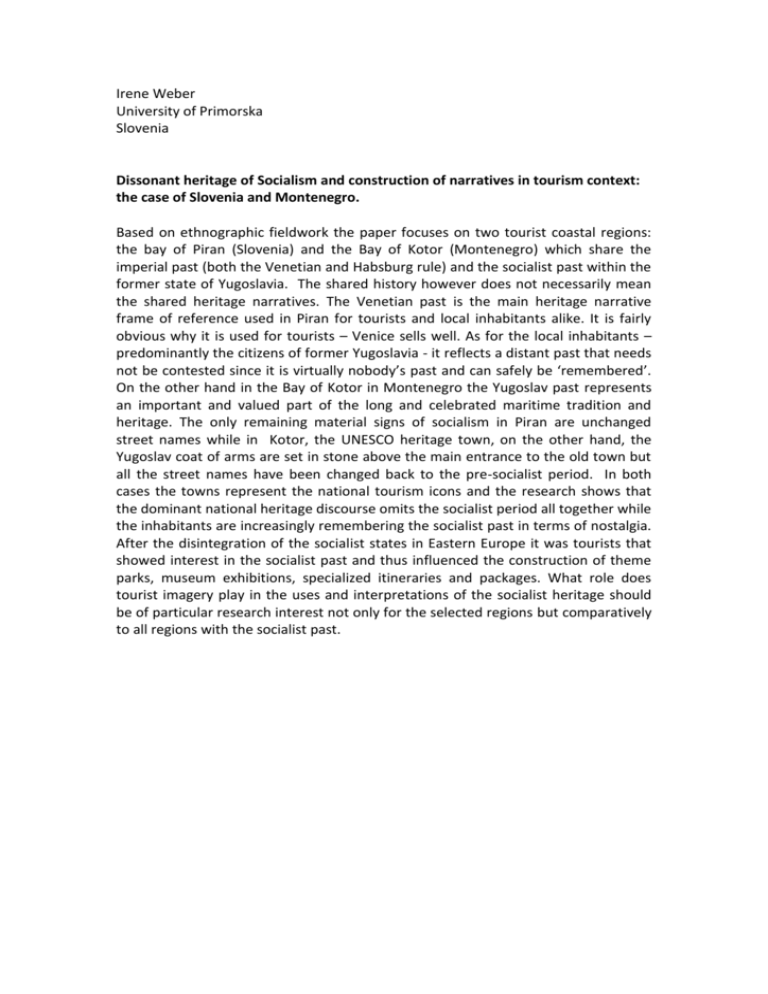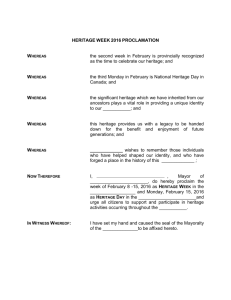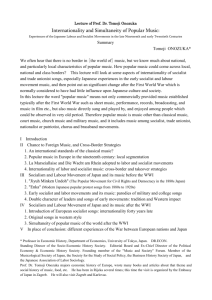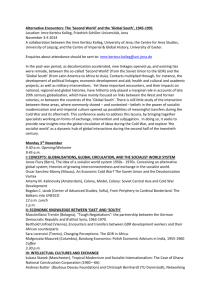Dissonant heritage of Socialism and construction of narratives in
advertisement

Irene Weber University of Primorska Slovenia Dissonant heritage of Socialism and construction of narratives in tourism context: the case of Slovenia and Montenegro. Based on ethnographic fieldwork the paper focuses on two tourist coastal regions: the bay of Piran (Slovenia) and the Bay of Kotor (Montenegro) which share the imperial past (both the Venetian and Habsburg rule) and the socialist past within the former state of Yugoslavia. The shared history however does not necessarily mean the shared heritage narratives. The Venetian past is the main heritage narrative frame of reference used in Piran for tourists and local inhabitants alike. It is fairly obvious why it is used for tourists – Venice sells well. As for the local inhabitants – predominantly the citizens of former Yugoslavia - it reflects a distant past that needs not be contested since it is virtually nobody’s past and can safely be ‘remembered’. On the other hand in the Bay of Kotor in Montenegro the Yugoslav past represents an important and valued part of the long and celebrated maritime tradition and heritage. The only remaining material signs of socialism in Piran are unchanged street names while in Kotor, the UNESCO heritage town, on the other hand, the Yugoslav coat of arms are set in stone above the main entrance to the old town but all the street names have been changed back to the pre-socialist period. In both cases the towns represent the national tourism icons and the research shows that the dominant national heritage discourse omits the socialist period all together while the inhabitants are increasingly remembering the socialist past in terms of nostalgia. After the disintegration of the socialist states in Eastern Europe it was tourists that showed interest in the socialist past and thus influenced the construction of theme parks, museum exhibitions, specialized itineraries and packages. What role does tourist imagery play in the uses and interpretations of the socialist heritage should be of particular research interest not only for the selected regions but comparatively to all regions with the socialist past.











